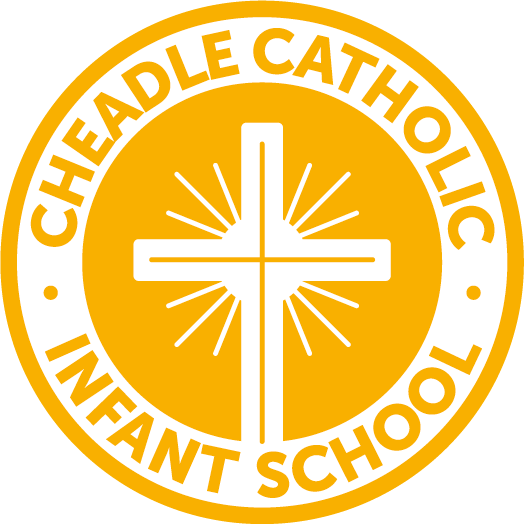Maths
Maths Rationale
At Cheadle Catholic Infant School our aim is to ensure that all children have the best grounding in mathematics. Through Mathematics, we actively aim to provide a relevant, challenging and enjoyable mathematics curriculum for all children. Children develop the use of mathematical language through speaking and listening, including reasoning and explanations.
Curriculum Intent
At Cheadle Catholic Infant School it is our intent to provide children with a high-quality, broad and challenging Mathematics curriculum. The exciting learning journey will allow for all children to become fluent in the fundamentals of maths, developing their conceptual understanding and the ability to recall and apply knowledge rapidly and accurately. Children will be able to reason mathematically by justifying, making links to known facts, or providing proof using mathematical language. Understanding of concepts will be challenged through solving problems by applying their mathematic knowledge. Links within other subjects will be highlighted and skills and mathematical knowledge will be applied. We will equip children with the foundations of mathematics that are essential to everyday life.
Curriculum Implementation
In the Foundation Stage, our young mathematicians will be provided with many exciting opportunities, through planned purposeful play and a mix of adult-led and child-initiated activities, to develop and improve their skills in counting, understanding and using numbers, calculating simple addition and subtraction problems; and to describe shapes, spaces, and measure.
Throughout Key Stage 1, we follow the White Rose Maths Schemes of Learning and supplement this with resources from NCETM Mastery Documents to teach a broad and challenging curriculum. Our Mathematics curriculum will provide many opportunities for children to develop confidence and fluency with whole numbers, counting and place value. The use of practical equipment, such as concrete objects and measuring tools, will support the children to gain a deeper conceptual understanding before being challenged through tasks and questions to explain their reasoning and solve a range of problems. The children are equipped with the skills to recognise shapes and their properties and measures to describe and compare different quantities such as length, mass, capacity/volume, time and money
Curriculum Impact
A variety of methods are used to find out what the children know and understand. Lesson activities are differentiated to suit the different abilities and learning styles. Mathematics lessons allow for collaborative learning and thus encourage children to talk in pairs, small groups or through class discussion, to share learning. For those children who grasp concepts rapidly, they will be challenged through a range of problems, whilst those not sufficiently fluent will be provided with opportunities to consolidate their understanding through additional practice and first response intervention. Children’s understanding of taught concepts will be assessed using end of block assessment tasks which provide opportunities for children to demonstrate their understanding fully. Evidence of the children’s learning journey through each Mathematics topic will be recorded in Maths books and on working walls.
